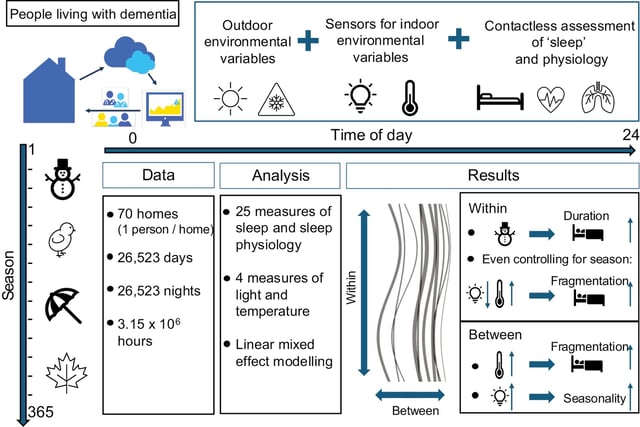Overview
- Researchers used under‑mattress, contactless bed‑occupancy and environmental sensors to gather objective data across seasons in people living with dementia.
- On nights when bedrooms were hotter than a person’s usual, sleep became more fragmented and breathing rates were higher.
- On days with brighter indoor light than usual, participants slept longer with fewer awakenings and showed lower breathing rates.
- Seasonal changes outdoors were reflected indoors, shifting sleep timing, duration and heart‑rate patterns, with timing tending to follow the clock rather than sunrise.
- Effects varied widely between individuals, supporting personalized guidance, while authors recommend testing simple steps such as cooler bedrooms at night and brighter daytime light, with possible energy savings in winter and relevance as hot nights increase.

